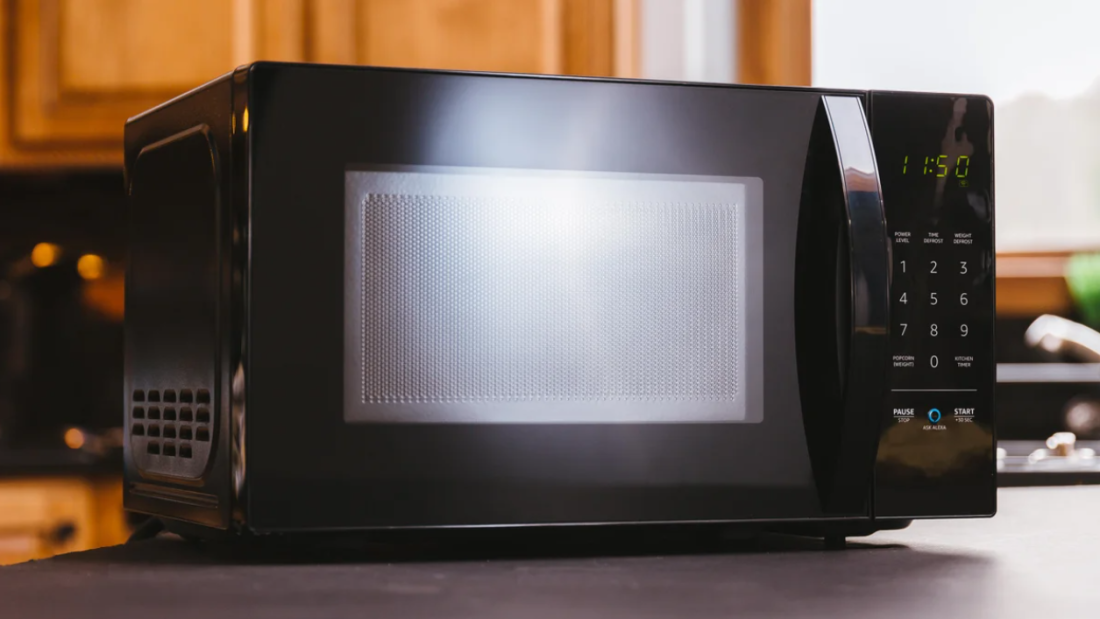How long does a microwave last? This question is one of the frequently asked questions about microwaves and the answer is almost uniform regardless of manufacturer: five to ten years.

Of course, the actual life expectancy of a microwave will depend on factors such as the number of family members in a household, how often the kitchen appliance is used, the level of maintenance done on a regular basis, and the brand and model you have.
If the microwave is heavily used and rarely cleaned or maintained, then it could lead to early damage. Meanwhile, if a microwave is rarely used and regularly cleaned, then it could last up to a decade.
Signs You Need to Repair or Replace Your Microwave
To know if it’s about to fail, here are some signs to watch out for.
- Broken door: Don’t use your microwave oven without a sealed door. This is one of the most essential security features needed to contain any radiation from spilling out and affecting you or anyone around you. The door doesn’t necessarily have to be broken. If the seal feels like it isn’t sticking anymore, it’s time to get a replacement.
- Worn-out buttons: If the keypads are no longer working, even after you’ve cleaned off some gunk, this could affect how your microwave functions.
- Weird smells: Whenever you use your microwave and you smell smoke, a burning scent, or wire on fire, this is a sign that something inside the microwave is wrong. Discontinue using it and try to have it repaired if it’s just newly bought or below 2 years old.
- Noisy operation: If you’re hearing some buzzing, clanging, rattling or other weird noises during operation, stop using it and have it checked. The noisiest your microwave should sound off is the humming or vibrating sound you normally hear when you heat stuff up. If you hear something new, have it diagnosed and repaired.
- Inaccurate cooking times: There are standard minutes for every heating or cooking task (that’s why microwave ovens have pre-set buttons). But once the cooking times start becoming off (either it ends too quickly or cooks too slowly), there’s a big chance that the microwave is near the end of its life.
Sometimes, even if your microwave oven isn’t showing the signs above, if it is over 10 years old, it is safer and more economical for you to have it replaced. This is because newer models are designed with modern safety and smart features. They’re also more energy-efficient.
Of course, if your microwave oven has been repaired twice already and it is still having issues, it might be cheaper to buy a new one than keep on having it repaired.
5 Tips to Maximize the Life of Your Microwave
To extend the lifespan of your microwave, remember to do these things:
- Be gentle with the door. This habit not only ensures you’re not damaging any mechanism within the microwave door, but it also keeps radiation in. Although the door and its seal are replaceable, note that the original manufacturer-made door will always be the best version.
- Clean it regularly. You don’t need any tech skills or electrical know-how to do this, but cleaning your microwave actually extends its life significantly. Try to keep the microwave clean of stains (even small ones) as soon as you see them. Yes, everyone is guilty of leaving bits of food and drink in there for “future cleaning” but remember that if you leave anything in there, the next time you use the microwave, it will be heated or burnt as well. You don’t need to deep-clean every time, but if you make it a habit to wipe your microwave down after use, you won’t need to do deep-cleaning at all.
- Avoid microwaving certain foods. There are certain foods that should never be microwaved, such as grapes, potatoes, raw or whole eggs (since they could blow up), frozen meat, processed meat, hot peppers, breast milk, carrots (due to its mineral content that could cause a spark) or pasta sauce.
- Never put things without the “microwave-safe” label. Aside from running the microwave empty (which is a no-no of microwave use), there are other non-food items that you shouldn’t place in the microwave. Anything with metal parts, leaves, paper bags, non-microwavable plastic and aluminum foil are just a few examples of things you shouldn’t microwave.
- Understand your kitchen’s circuit needs. One of the most common issues why microwave ovens prematurely get damaged is because homeowners mistakenly run their microwave on the same circuit as larger kitchen appliances. I know this isn’t a widely-known fact, but knowing this could extend the life of your microwave significantly.
If you love how user-friendly and easy-to-use your microwave has been to your kitchen needs, then learn how to give it proper care and spot when to have it repaired or replaced.




